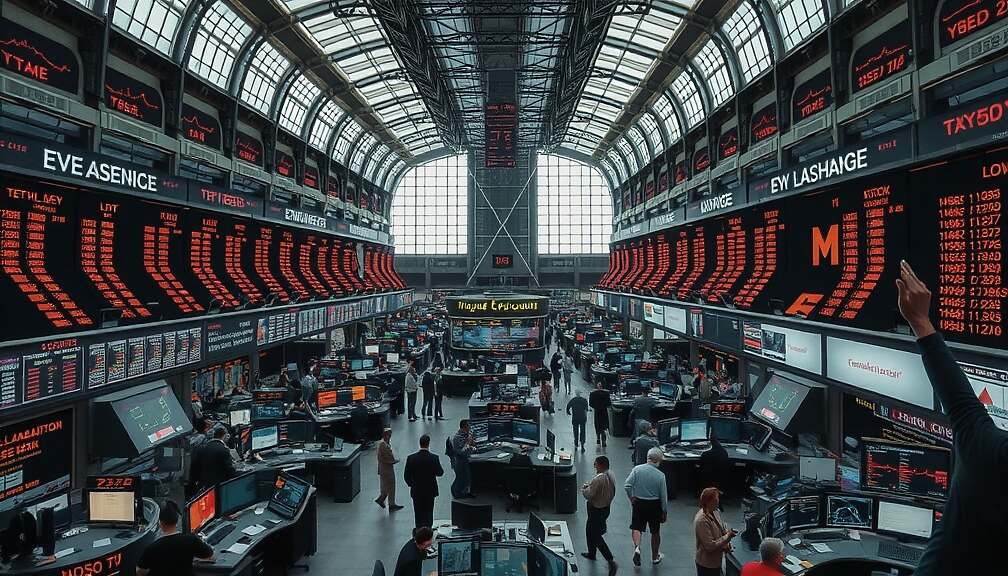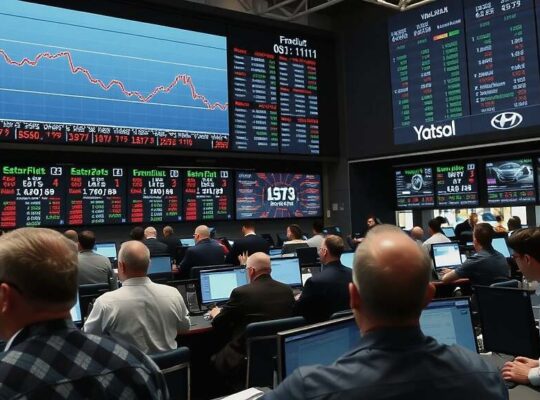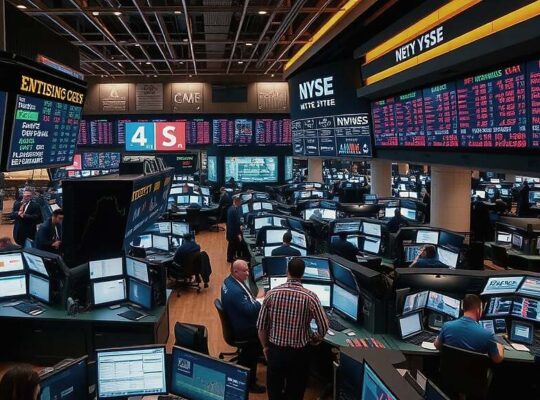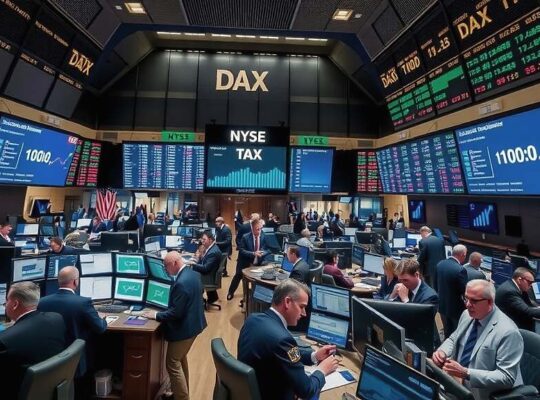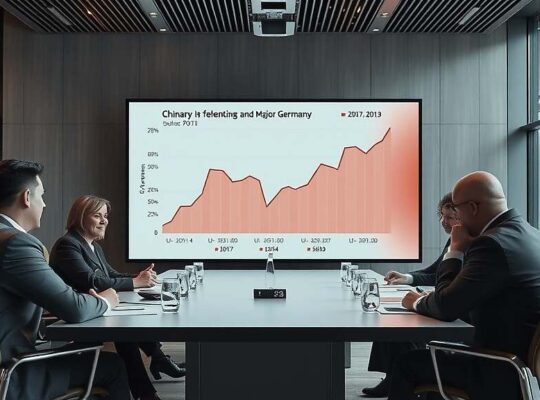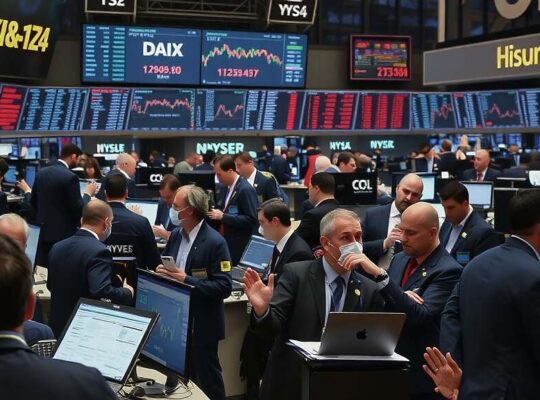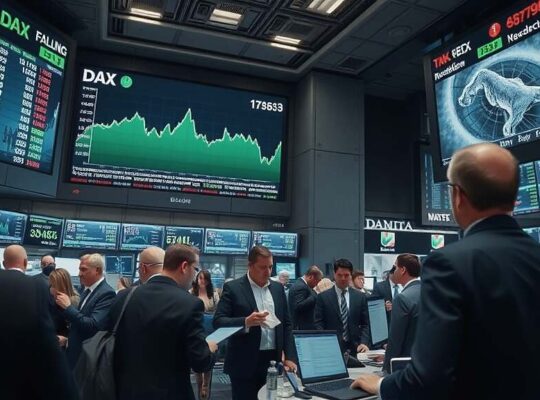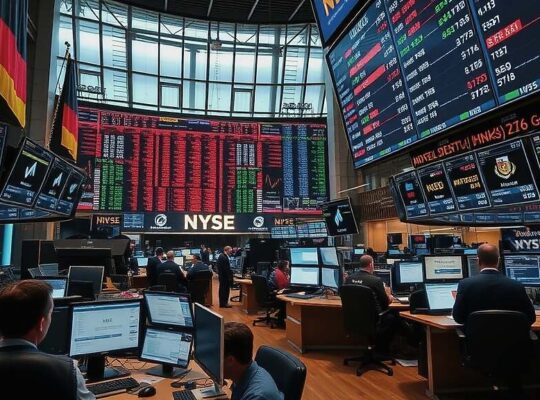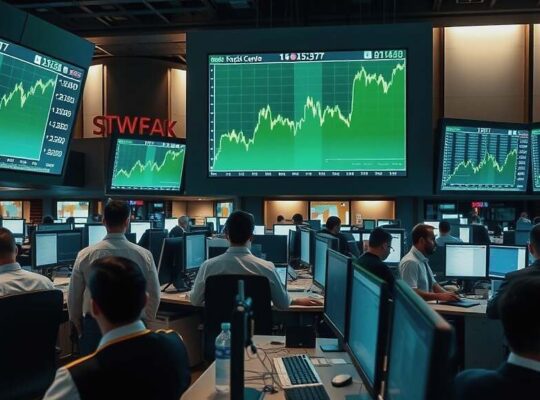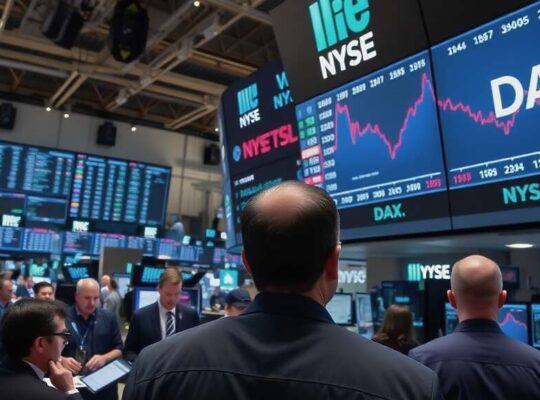30 am, a 0..1% increase from the previous day’s close. Infineon, Rheinmetall and Airbus led the performance, while SAP, BMW and Brenntag lagged behind. However, the index’s slight recovery is failing to keep pace with the momentum seen on Wall Street, raising concerns about Germany’s economic competitiveness on the global stage.
“The DAX managed a positive start to the trading week, but remains stubbornly below its 200-day moving average” stated Thomas Altmann of QC Partners. “In the broader international context, this represents only a marginal improvement”. This persistent stagnation reflects a deeper issue: a lack of sustained investor confidence willing to capitalize on any recovery. Altmann’s observation highlights a worrying trend – the DAX is deviating from historical patterns associated with year-end rallies, typically observed in November, long considered one of the strongest months for the index. Historically, a majority of Novembers have ended positively, but this year, the DAX remains firmly in negative territory.
The disconnect is compounded by escalating expectations regarding a Federal Reserve interest rate cut in December. Market sentiment now places the probability of a rate reduction at a commanding 75 percent. This strong anticipation suggests investors believe the Federal Reserve, under Jerome Powell’s leadership, will prioritize addressing signs of a weakening labor market even if it means accepting a slightly elevated inflation rate. This divergence in monetary policy between the US and Europe could further exacerbate the DAX’s underperformance as investors flock to opportunities presented by a more accommodative US environment.
Meanwhile, the euro strengthened slightly to $1.1526, while Brent crude oil prices dipped to $63.12 a barrel, a decrease of 0.4 percent. While seemingly minor fluctuations, these movements underscore the fragility of the current economic climate and the continued vulnerability of European markets to global economic headwinds. The current situation places increased scrutiny on policymakers and requires a reassessment of strategies to reinvigorate German economic growth and restore investor confidence.


